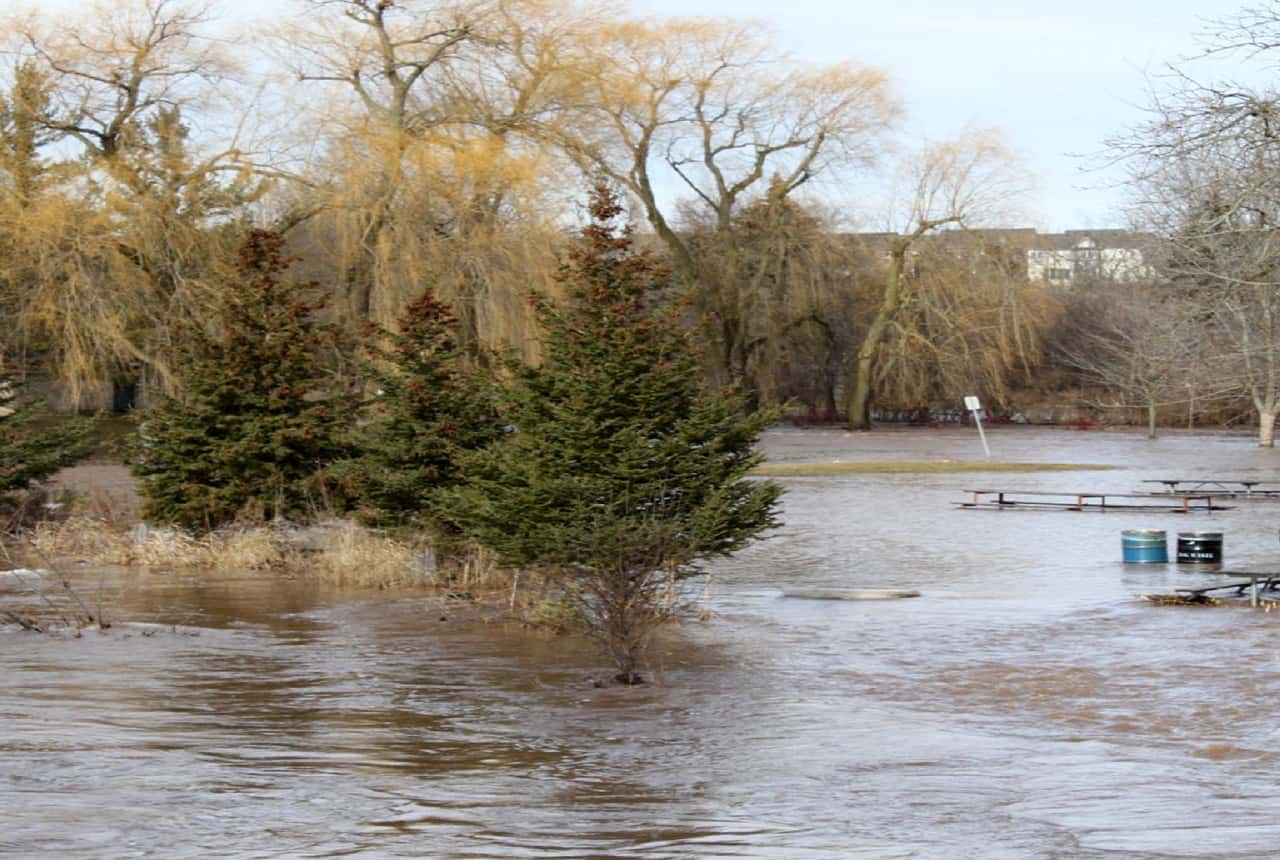Mississauga and Brampton can expect more floods, extreme heat as climate change accelerates
Published September 23, 2021 at 8:56 am

Mississauga, Brampton and surrounding areas are going to experience more flooding and extremely hot temperatures due to climate change impacts that are occurring at a rapid pace, Peel’s conservation authority says.
In fact, according to Credit Valley Conservation (CVC) officials who recently collected and studied environmental monitoring data, climate change is proceeding faster than previously thought, especially in northern regions like Canada.
The CVC says Mississauga, Brampton, Caledon and Orangeville are experiencing similar climate change impacts as those reported globally in the United Nations Intergovernmental Panel on Climate Change’s (IPCC) sixth assessment report, released Aug. 9.
In addition to warning of the accelerated pace of climate change, the report notes it’s “unequivocally tied to human influence.”
“The report makes clear that climate change impacts are occurring and will continue at a rapid pace unless urgent action is taken,” CVC officials say. “It also underscores the choices governments, agencies, corporations and individuals have to determine the future condition of our planet.”
Locally, CVC data shows that annual average temperatures have increased by 1.75 degrees Celsius over the last 80 years. Officials have observed a decline in the frequency and intensity of extreme cold days (below minus-10C), the growing season is 14 days longer and more precipitation has increased the risk of flooding, with the intense July 8, 2013 storm in Mississauga and Brampton serving as a prime example.
“Local communities are trending toward an increase in extreme heat days, exceeding the normal annual number in nine of the past 10 years,” the CVC says, noting those findings align with global observations.
CVC chief administrative officer Deborah Martin-Downs says her organization works with the community and all levels of government “as the boots on the ground, making a difference at the local level.”
She adds, “Global climate change trends have been felt at the local level for several years and we all have a stake in helping our communities mitigate what we can and adapt to the new reality.”
Martin-Downs said the CVC, with funding support from the Region of Peel, has accelerated local climate change action, including critical adaptation and mitigation measures. Key initiatives include updating flood mapping areas to reflect new climate change flooding scenarios, ensuring new development does not take place in areas prone to flooding.
CVC is also leading a strategy to improve community resilience to flooding, which has received support from the National Disaster Mitigation Program.
Additionally, CVC launched a Climate Change Strategy in July 2020 that guides priority actions and calls for a transition away from fossil fuels to reduce emissions to net-zero by 2050, noted Martin-Downs.
The City of Mississauga has its own Climate Change Action Plan, a blueprint to reduce its carbon footprint in the coming decades.
In an interview on Tuesday with insauga.com publisher Khaled Iwamura, Mayor Bonnie Crombie said Mississauga is committed to addressing climate change.
“We have an action plan to help address, adapt and mitigate the pressures of climate change,” she said.
INsauga's Editorial Standards and Policies









